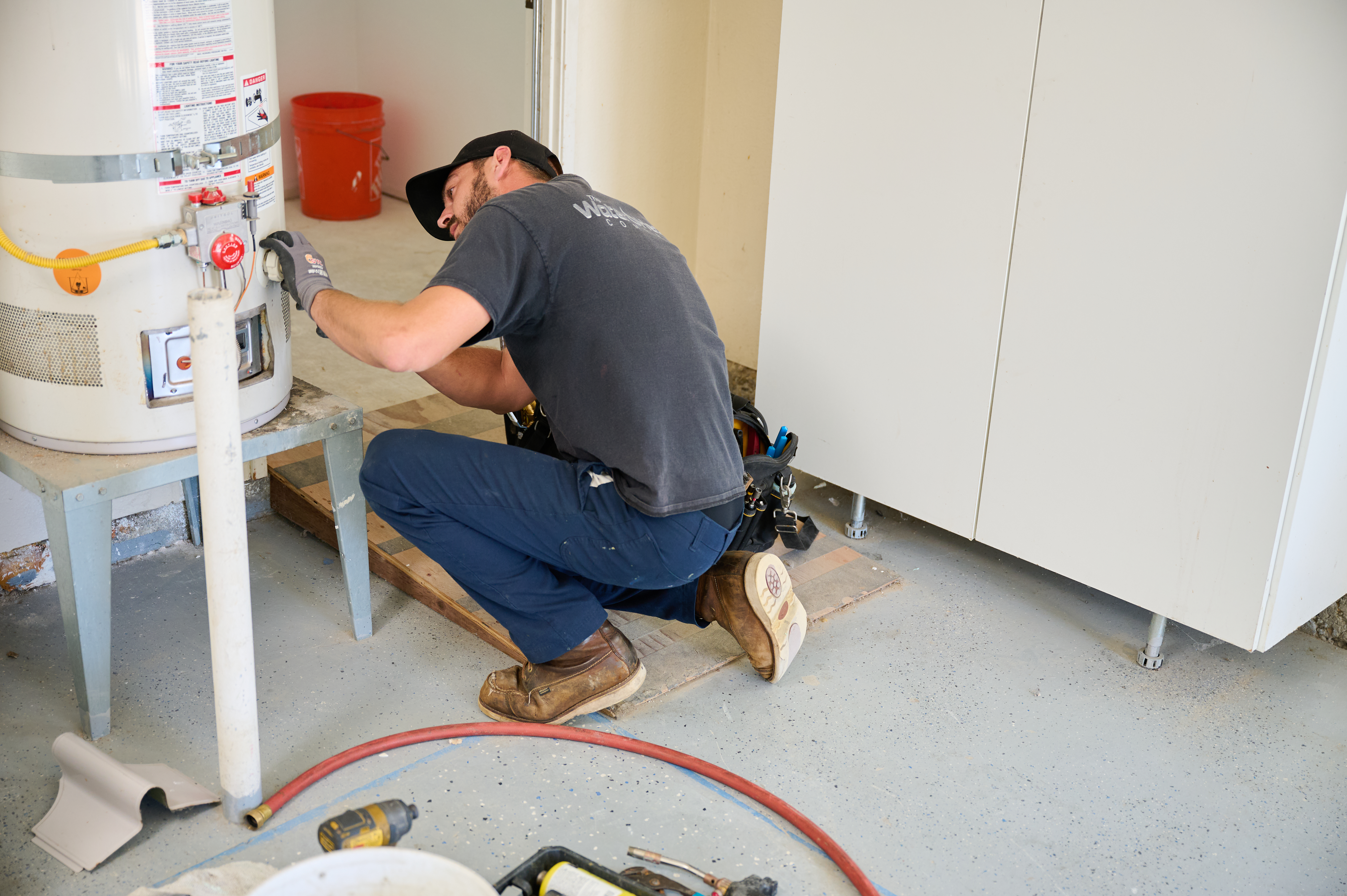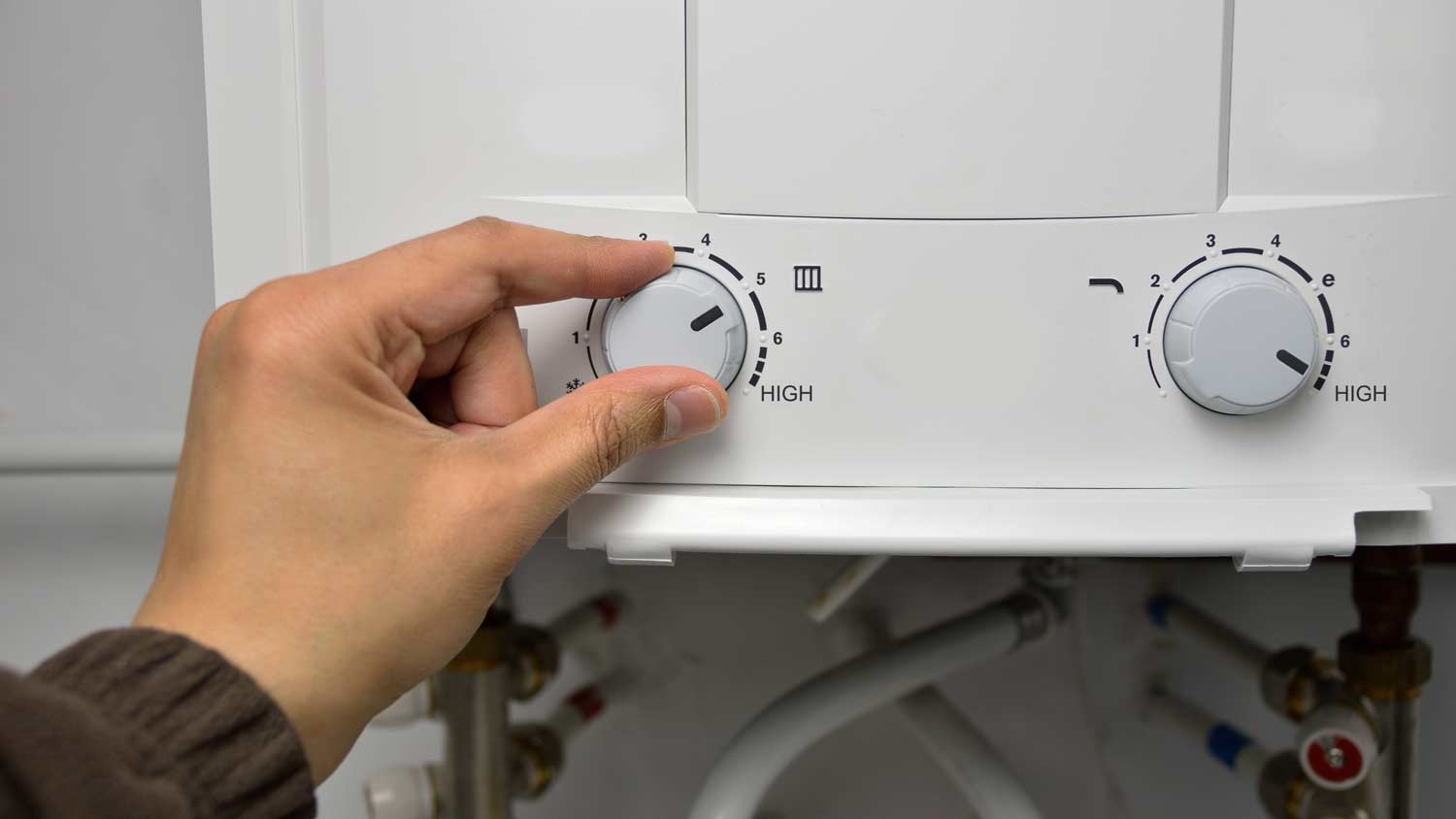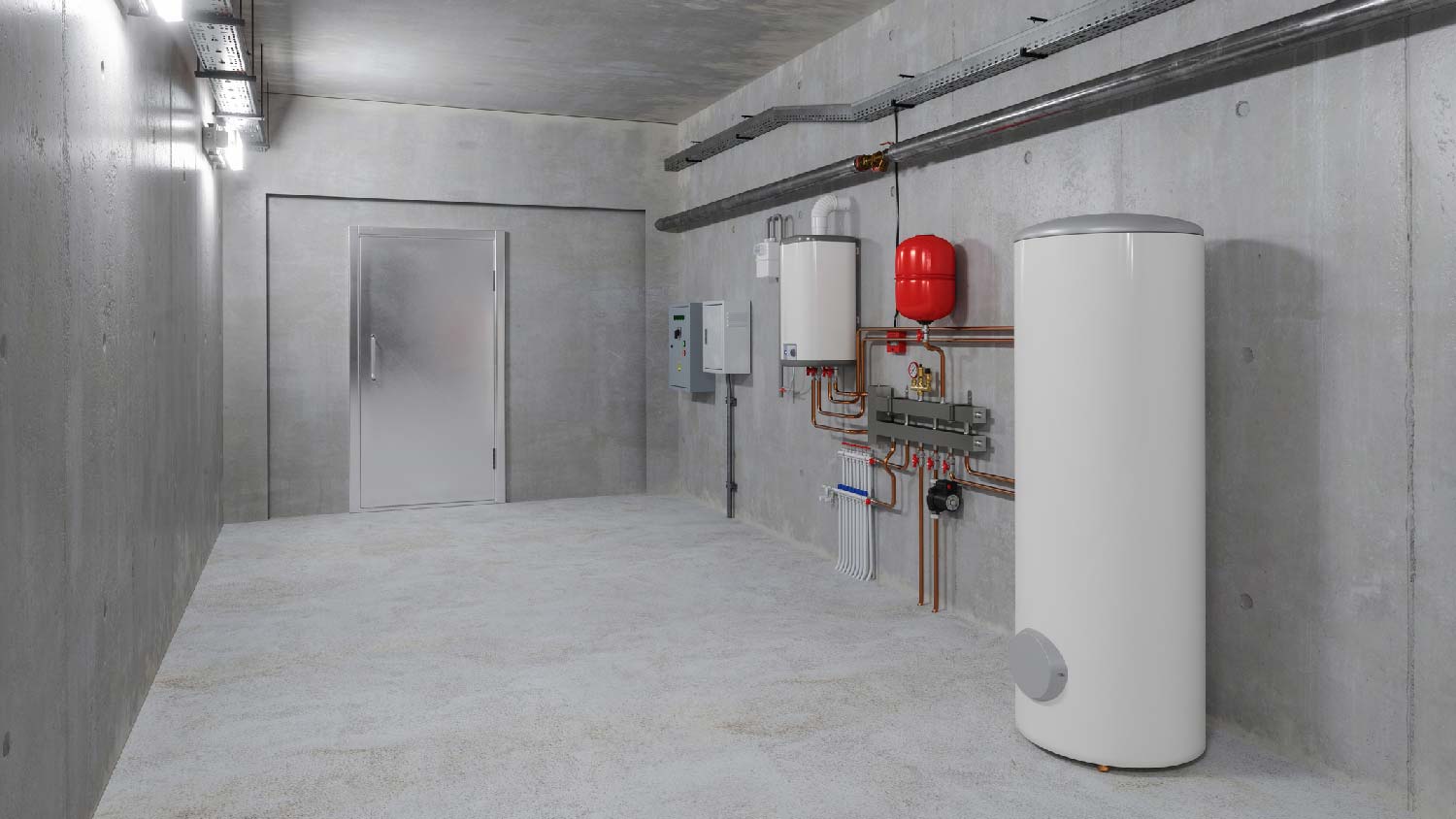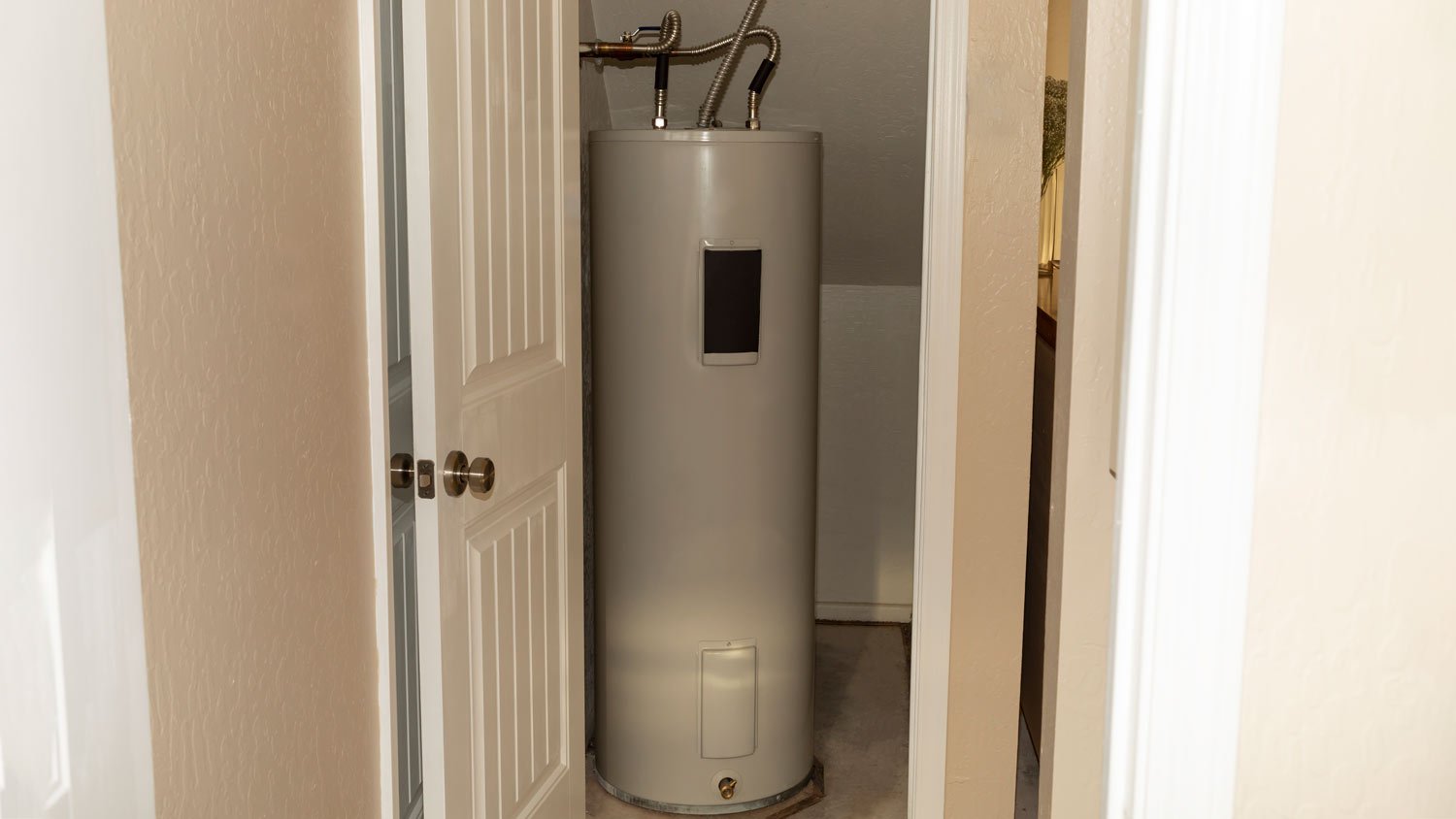
Tankless water heater costs in Columbus, OH depend on the size of your water heater, location, fuel type, and more. Keep reading to calculate your expenses.
Kiss cold showers goodbye


Tankless water heaters provide on-demand hot water rather than relying on a tank.
The average unit produces 2 to 5 gallons of hot water per minute.
Single-point systems can heat enough water for one appliance.
Whole-house systems can heat enough water for multiple appliances.
Tankless water heaters can have issues with flow capacity, venting, and ignition.
Sick of racing to get the first shower of the morning? Anyone with a large household or undersized water heater knows just how cold a shower can get when you run out of hot water. For many, it’s a homeownership right of passage—but it doesn’t have to be. Tankless water heaters are a game changer. So, how does a tankless water heater work? This guide will tell you what you need to know.
There’s a big difference between traditional water heaters versus tankless water heaters. Traditional units store and heat water over time. If you use all of the water in the tank faster than it can warm up, you’ll run out of hot water—hello, freezing showers.
Tankless water heaters are exactly what they sound like—they don’t use a tank. Instead, water is heated as you use it. There’s no running out of hot water or waiting. These units provide on-demand heating and are more energy efficient than tank-style water heaters.
You might be wondering how a tankless water heater manages to have a seemingly endless stream of hot water. It’s all down to modern mechanics. The second you turn on a hot water tap, cold water travels through your pipes, into your heater, and across a gas burner or electric coil, that heats the water.
Most tankless water heaters provide 2 to 5 gallons of hot water per minute, though some gas-powered water heaters can produce up to 12 gallons per minute. Generally, tankless water heaters have a lower flow rate than storage tank heaters, but you’re less likely to run out of hot water and can install multiple units if necessary.

Tankless water heaters are typically a bit more adjustable than storage tank water heaters, especially compared to older units. Most of them have a front-facing control panel, which allows you to adjust the gas valve (or the amount of electricity used), mixing valve, and water flow. This helps you achieve the ideal temperature and closely manage your utility bills.
Remember that, unless you need to, you shouldn’t drastically change the settings. Talk to a water heater contractor near you about your specific needs so they can set up your water heater correctly during installation.
Tankless water heaters are known for their efficiency, compact size, and relatively simple maintenance needs—never mind that most people don’t enjoy cold showers. That said, they do have their issues.
Tankless water heaters tend to struggle if you’re using multiple appliances at the same time, like taking a shower while running the dishwasher. You can experience low water pressure or a full shutdown when the system is overloaded.
To mitigate this problem, you can install multiple units. Single-point systems are great for appliances that have large demands. Otherwise, you just have to be mindful of how much water you’re using at once.
A whole-house tankless water heater should be big enough to accommodate at least 5 1/2 to 7 1/2 gallons per minute. In this case, consider going with a gas-powered tankless water heater since they typically have a higher flow rate than electric tankless water heaters.
Though they’re energy efficient, tankless water heaters can cost twice as much as tank-style water heaters. On average, tankless water heaters cost $1,300 to $3,700 on average. Single-point systems are less expensive, while whole-house systems are on the high end.
If the air supply is blocked, tankless water heaters can overload or become a fire hazard. Ensure your heater can vent properly; a water heater pro can inspect the unit for you. Tankless water heater repairs typically cost $220 to $960.
Gas-powered tankless water heaters can have issues with the ignition and gas supply. Typically, this stems from a gas or water valve that’s stuck shut and won’t completely open.
Tankless units typically have a longer lifespan than storage tank units, but all water heaters are prone to mineral buildup—particularly calcium and magnesium. This buildup can block your system and cause issues. To extend the life span of your unit, maintain your water heater and regularly replace the water filter.
From average costs to expert advice, get all the answers you need to get your job done.

Tankless water heater costs in Columbus, OH depend on the size of your water heater, location, fuel type, and more. Keep reading to calculate your expenses.

Learn all the factors that influence the cost to install a heat pump water heater at your home.

Find out the average tankless water heater repair cost, what impacts pricing, and how to save. Get expert tips to plan your repair budget with confidence.

Learning how to replace a water heater in your home is a challenging task that most people will want to leave to the professionals. But if you’ve got expert-level skills, here’s what to do.

Sediment buildup and loose valves are common reasons for a hot water heater that’s making noise. Here are the most common causes and their fixes.

Boilers work best with the right maintenance. Here’s how owners should keep an eye on them, from periodic inspections to regular care.